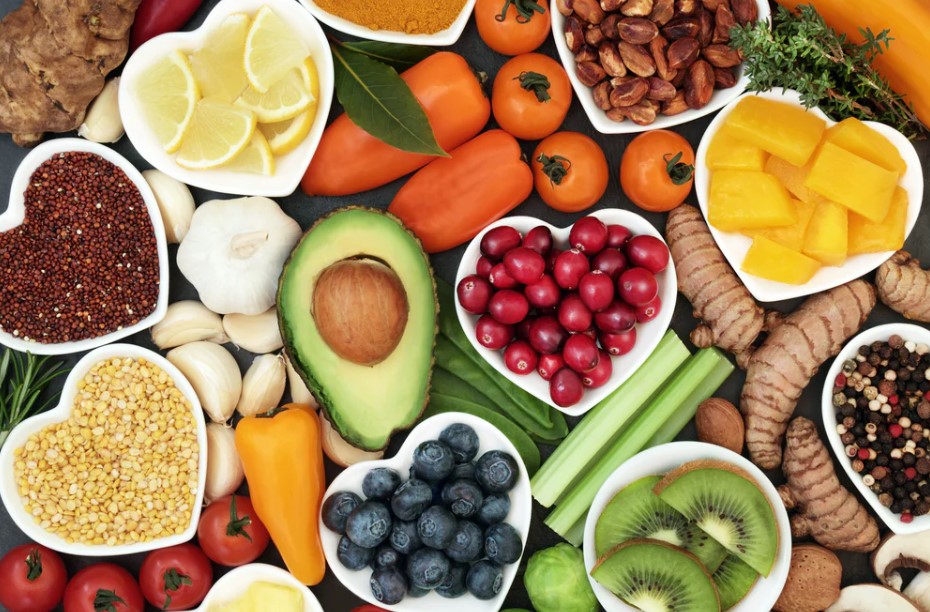
The significance of antioxidants in our diet cannot be overstated. These powerful compounds play a critical role in neutralizing harmful free radicals, supporting overall health, and reducing the risk of chronic diseases. However, the modern diet often lacks sufficient amounts of these vital substances. Here are six practical strategies for incorporating more antioxidants into your daily eating habits.
Consume a Variety of Fruits and Vegetables: Fruits and vegetables are a rich source of various antioxidants like vitamin C, beta-carotene, flavonoids, and selenium. Eating a wide range of these plant-based foods ensures a diverse intake of antioxidants. Aim for at least five servings of fruits and vegetables daily, prioritizing colorful produce like berries, tomatoes, carrots, spinach, bell peppers, and oranges. Remember, each color indicates a different set of antioxidants, so ‘eat the rainbow’ to maximize your intake.
Include Whole Grains in Your Diet: Whole grains, such as brown rice, oatmeal, whole wheat bread, and quinoa, provide antioxidants that you won’t find in fruits and vegetables, like lignans and ferulic acid. Besides antioxidants, they also provide dietary fiber, which aids in digestion and helps control hunger. Switching from refined grains to whole grains is an effective way to enhance your antioxidant intake.
Use Herbs and Spices Generously: Often overlooked, herbs and spices are an excellent source of antioxidants. Cinnamon, cloves, oregano, and turmeric, among others, contain significant antioxidant levels. Incorporating these into your meals not only increases your antioxidant intake but also enhances the flavor of your dishes.
Research Peptides
Research carried out on rats reveals that https://www.peptidesciences.com/bpc-157-5mg can effectively neutralize certain oxidative stress markers like nitric oxide and malondialdehyde (MDA). This suggests that BPC-157 has strong antioxidant properties, a feature of the peptide that is further supported by research showing its capability to reduce the production of reactive oxygen species in the digestive system. Experiments determining if genetically engineered lactococcus lactis bacteria can deliver BPC-157 to the digestive system have shown that these bacteria notably enhance the concentration of the peptide in cell cultures.
Drink Green Tea: Green tea is renowned for its high concentration of potent antioxidants known as catechins. Regular consumption of green tea can help reduce inflammation, protect cellular health, and even support weight loss. Aim for 2-3 cups of freshly brewed green tea daily to take advantage of its antioxidant benefits.
Snack on Nuts and Seeds: Nuts and seeds are nutrient powerhouses, boasting a substantial amount of antioxidants such as vitamin E and selenium. Almonds, walnuts, flaxseeds, and chia seeds are particularly high in these antioxidants. Incorporate a handful of mixed nuts or seeds into your diet each day – whether as a standalone snack, in salads, or as a yogurt topping.
Choose Dark Chocolate: Good news for chocolate lovers – dark chocolate is packed with antioxidants, including flavonoids and polyphenols. It’s higher in cocoa and lower in sugar than its milk chocolate counterpart. Choose dark chocolate with at least 70% cocoa content to enjoy its antioxidant benefits. Remember, while it’s nutritious, it’s also calorie-dense, so moderation is key.
As you aim to increase your antioxidant intake, it’s vital to note that more is not necessarily better. Extreme high levels of antioxidants can interfere with other essential processes in the body. The goal should be to consume a balanced, varied diet rich in antioxidant foods, not to overload on specific antioxidant supplements.
Also, it’s important to recognize that antioxidants are most beneficial when obtained from whole foods. While supplementing can have its place, particularly for people with specific deficiencies, it doesn’t compare to the broad range of nutrients, including various antioxidants, fiber, and minerals, you gain from eating a nutrient-dense diet.
Implementing these six strategies will ensure you’re consuming a rich array of antioxidants to support your health. However, keep in mind that a diet high in antioxidants is just one piece of the wellness puzzle. Regular physical activity, adequate sleep, proper hydration, and stress management are equally essential for maintaining good health.
Remember, healthy eating is not about strict dietary restrictions or depriving yourself of the foods you love. It’s about feeling great, having more energy, and giving your body the nutrients it needs to function optimally. Making small but impactful changes, like incorporating more antioxidant-rich foods into your diet, is a step towards a healthier, happier you.
